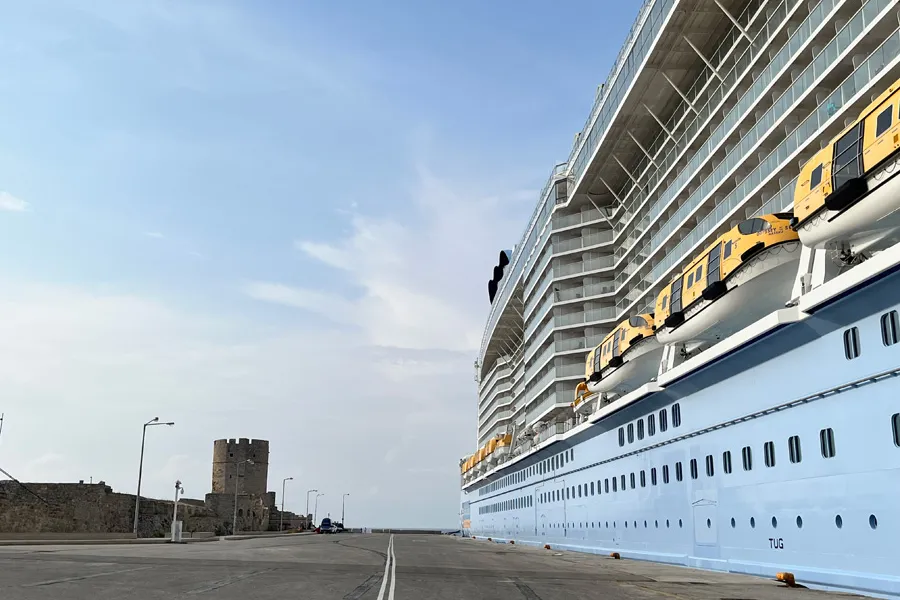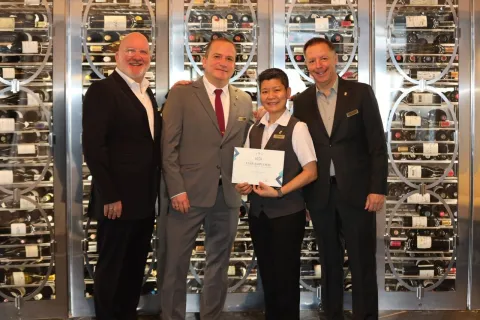
In my experience working in the cruise industry, I have observed that there are not many inspiring leaders on board the ship. Financial targets always take priority, and cruise ship companies are not genuinely concerned about reducing turnover rates. Managers often focus on reprimanding, terminating, and condemning mistakes, which keeps the crew members on edge. However, is there a better way to run the demanding and hectic operations on board a cruise ship? Certainly, yes. Is there anyone willing to establish more efficient leadership standards on board the ship? Unfortunately, not many.
But here's the good news: as an individual, you can make a difference and become a leader through your own initiative and efforts.
The debate about whether leadership is an innate trait or something that can be learned has been ongoing for decades. While extensive research explores whether leaders are born or made, the consensus is that both perspectives hold some truth. Natural abilities such as collaboration, intelligence, charisma, and compassion can help individuals emerge as managers, but training and experience can transform them into true leaders.
Many traits, including stress resistance, delegation skills, responsibility, and a respectful management style, can and should be learned and developed.
Here are some proactive ways to grow as a leader in the cruise ship industry:
1. Explore management theories: Consult management books and explore different management styles to find one that suits you and benefits your team.
2. Find a coach: Enroll in a coaching program to improve your leadership skills. A career coach can help you identify areas for improvement and guide your personal and professional development.
3. Find (and become) a mentor: Establish a long-term mentorship relationship. Both being mentored and mentoring others can enhance your leadership abilities.
4. Incorporate key strategies into your behavior: Thoughtfulness, effective communication, and setting clear expectations are essential for being a good boss or leader.
5. Be thoughtful: Make decisions considering the best interests of your team and the company.
Communicate and listen: Incorporate good communication skills by actively listening to your team's input and feedback.
6. Set clear expectations: Establish fair and consistent expectations for your employees, reducing stress and fostering a cohesive work environment.
As a team leader on a cruise ship, your responsibilities extend beyond delegating tasks and monitoring employees. Your role is to ensure the success of the entire team and each team member individually. Understanding their strengths, weaknesses, and goals will help you utilize their talents effectively.
To excel as a leader, ensure your team has the necessary resources, provide challenging and meaningful work, be accessible and approachable, hold regular one-on-one meetings for career development, measure performance, and provide regular feedback.
While transitioning from a supervisor to an effective leader may present challenges, it is essential to recognize and overcome these obstacles to become an inspiring and impactful leader.
In the cruise ship industry, as in other fields, great leaders stand out due to their ability to empower and inspire those they lead. They focus on increasing the sense of power among their team members rather than exercising power over them. Effective leaders in the cruise ship industry spread hope, earn respect and followership, and nurture the development of new leaders. These leaders create a positive atmosphere in the stressful cruise ship environment.
Although the terms "leader" and "boss" are often used interchangeably, there is a significant difference between the two. Leaders inspire, support, motivate, nurture, and empower their teams, while bosses rule through fear, manipulation, insecurity, and stress.
While some individuals may have innate leadership qualities, the behaviors that make the best leaders can be developed and refined over time.
Today's employees are looking for a more innovative work culture that will make them more productive and happier in their jobs. They want to be part of a more collaborative and collective team, and they want to feel more connected to those around them. Employees no longer want to work for a "boss" but rather a leader, especially in the stressful cruise ship working environment. How employees perceive their managers can significantly impact their satisfaction at work. In fact, 75% of employees that are leaving their jobs admit that the reason they were leaving was because of their boss. We all know at least one "boss" on the ship who made us think about quitting our job. Do not be that person who makes other crew members quit their job. Managers must realize that merely being someone's boss doesn't mean they are a leader.
We all know the significance of the leadership problem in the cruise ship industry. The change is inevitable, but to impose the management change in the cruise ship industry, cruise line companies must change their priorities. I never understood that for all this giant cruise line corporation, it is ok to have an increased turnover rate year by year. It is much more efficient to train the leaders and sustain the level of efficient leadership on the cruise ship, which would lead to long-term, sustainable business operations on the cruise ships. And it is also cheaper to decrease the turnover rate on the ship by increasing the leadership levels, but somehow that has yet to become a priority for the cruise line operators.
Crew Insights
Articles and experiences shared by crew members working on cruise ship. Find out more about ship life at sea together with tips and advices for first time crew members and cruise oldtimers.












